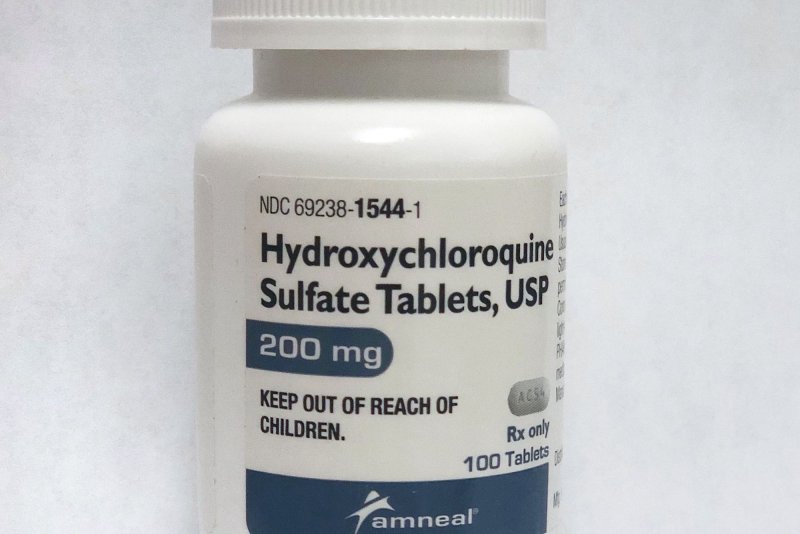SPEAKING OF SNAKE OIL
Hydroxychloroquine, remdesivir fail to improve COVID-19 outcomes in study
A new study found little benefits associated with the drugs hydroxychloroquine, pictured, or remdesivir, in patients with severe COVID-19. Photo by UPI
July 12 (UPI) -- Neither remdesivir nor hydroxychloroquine boosts recovery in patients hospitalized with COVID-19, according to the findings of a clinical trial led by the World Health Organization, and published Monday by the Annals of Internal Medicine.
Nearly 8% of patients treated with hydroxychloroquine and just over 7% of those given remdesivir died in the hospital, the data showed.
In comparison, between 4% and 7% of those who received "standard care" -- typically treatment with steroids and other drugs to reduce inflammation and manage respiratory symptoms -- died during their hospital stay, the researchers said.
Similarly, 10% of those given remdesivir and 15% of those who received hydroxychloroquine required mechanical ventilation to breathe, compared with 7% to 11% of those treated with standard care, they said.
"Despite the early emergence of reports that both remdesivir and hydroxychloroquine effectively exerted strong antiviral activities against [the coronavirus] ... our results show no antiviral effects of these drugs in hospitalized patients," the researchers, from Norway, wrote.
"Our findings question the antiviral potential of these drugs in hospitalized patients with COVID-19," they said.
The U.S. Food and Drug Administration approved remdesivir, an antiviral drug originally developed to treat the Ebola virus, for use in people hospitalized due to severe COVID-19 in October.
Since then, though, the drug has produced mixed results in clinical trials, and the WHO recommended against its use in November.
The agency issued the recommendation after initial results from its 30-country "Solidarity" study found that its use has no significant impact on mortality, length of hospital stay or need for ventilation among hospitalized patients.
The malaria drug hydroxychloroquine, meanwhile, was touted as a potential COVID-19 cure by then-President Trump and others early in the pandemic, despite the lack of clinical trial data suggesting that it is any more effective than placebo, or a fake treatment, at promoting recovery.
For this study, researchers from Oslo University Hospital in Norway and 22 other facilities randomly assigned 181 hospitalized patients to receive remdesivir, hydroxychloroquine or standard care.
Study participants accounted for nearly one-fourth of all people hospitalized due to the virus in Norway between March 28 and Oct. 4 of last year.
There were no significant differences between treatment groups in terms of rates of death during hospitalization, the data showed.
Remdesivir and hydroxychloroquine did not affect the degree of respiratory failure or inflammation among patients given the drugs, compared with those who received standard care, the researchers said.
In addition, patients in all three groups had similar decreases in viral load, or the levels of virus, in the nose and throat during the first week of treatment as well as at 10 days.
The lack of antiviral effect with remdesivir and hydroxychloroquine remained consistent across patients of different ages as well as those with distinct symptom duration, viral loads and levels of antibodies, or cells produced by the immune system to fight off viruses, according to the researchers.
"The overall lack of effect of remdesivir and hydroxychloroquine on the clinical course of patients hospitalized for COVID-19 was accompanied by a paucity of effect on ... viral clearance in the [nose and throat]," they wrote.
No comments:
Post a Comment